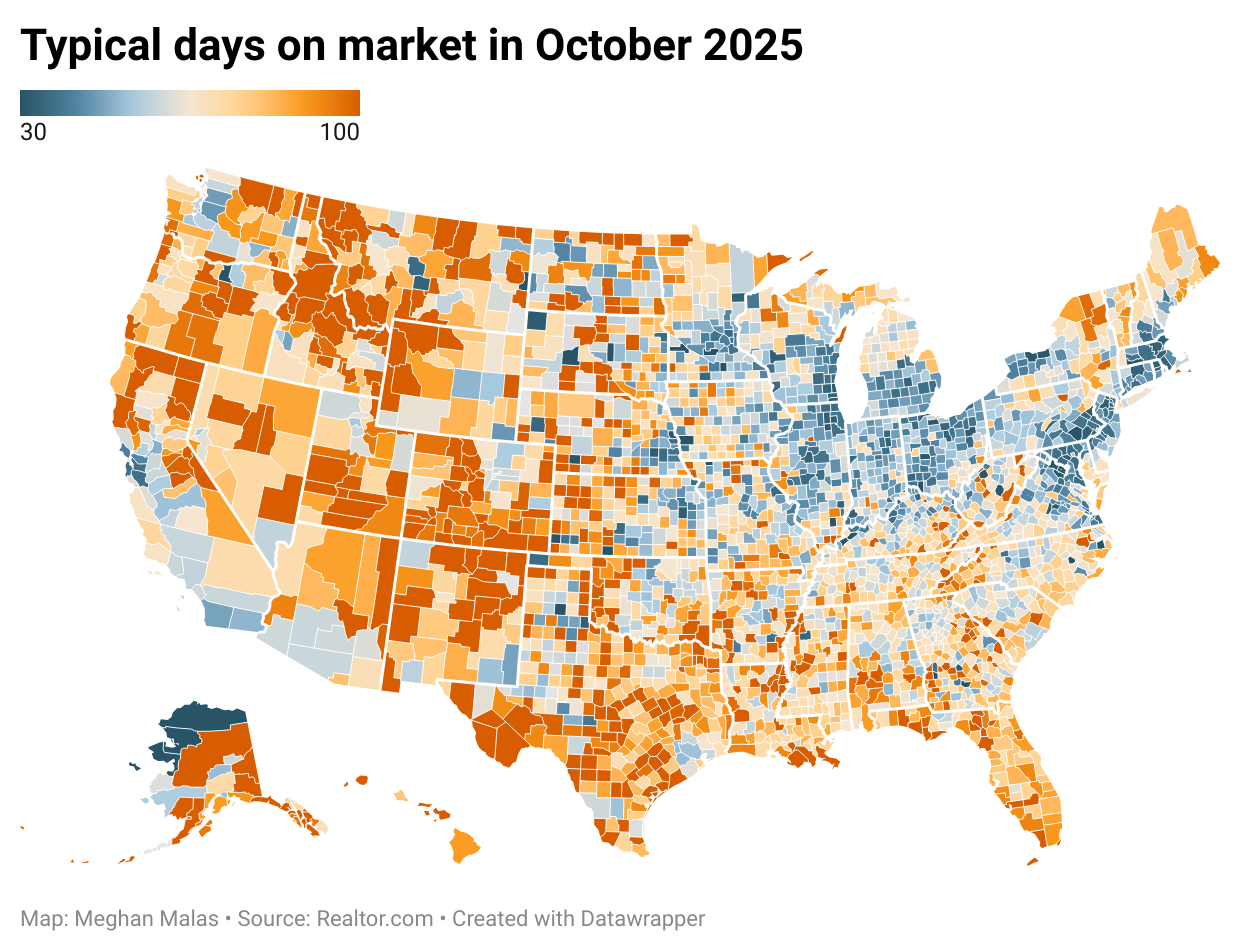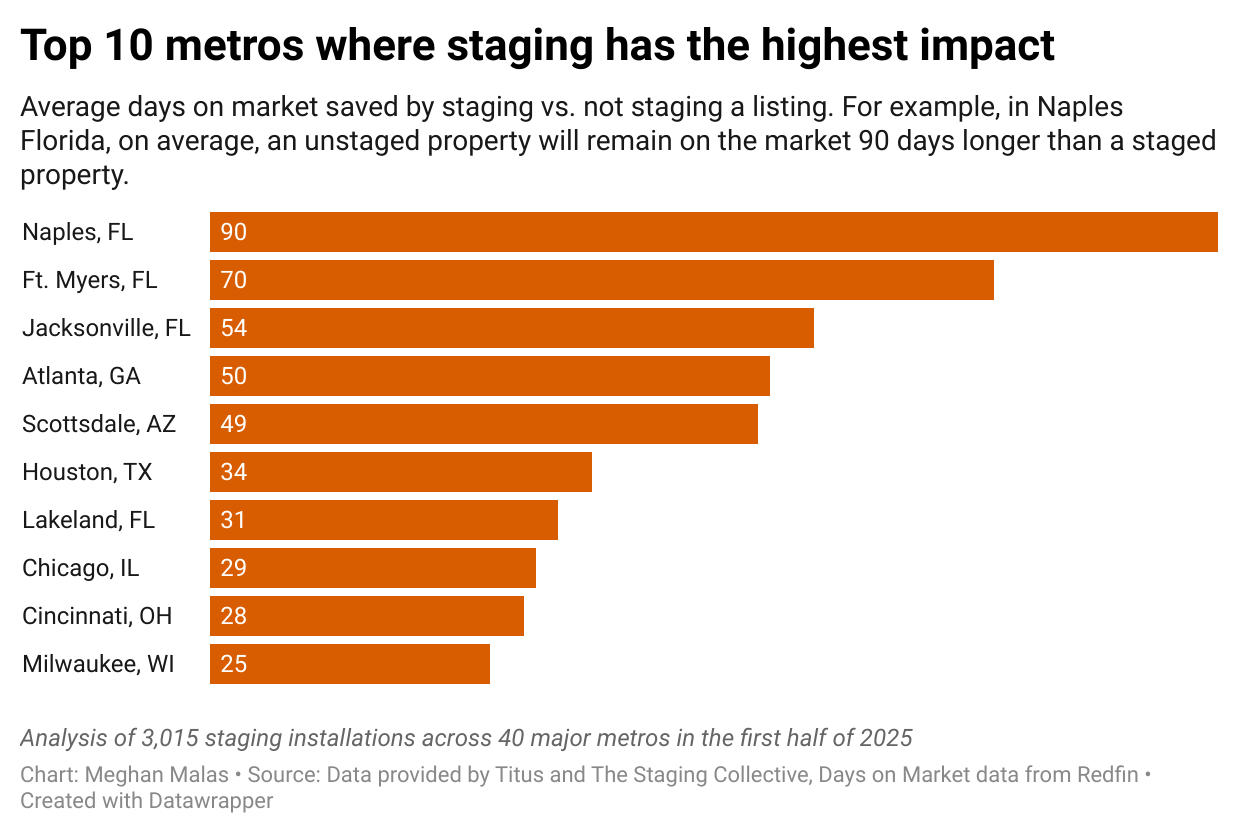- ResiClub
- Posts
- The hidden financial friction slowing home sales—and the startup removing it
The hidden financial friction slowing home sales—and the startup removing it
Titus allows homeowners and agents to defer costs like staging, photography, and marketing until closing.
Today’s letter is brought to you by Acres.com!
When it comes to land, one missed detail—whether that’s risk or a nearby competitor—can turn a promising site into a costly setback. Acres AI brings clarity to the earliest stages of evaluation by connecting parcels, ownership, mortgages, and every critical data layer in one view, so you can make fast, decisive decisions backed by data.
In this free webinar, you’ll see how Acres AI summarizes complex parcel data in a single click to streamline sourcing and strengthen due diligence. If you’re responsible for finding or vetting land, this session shows how AI can help you move faster, avoid costly surprises, and focus on the right sites.
When an empty-nester couple decided to sell their 3,800-square-foot home in a suburban Atlanta market last year, they quickly encountered a problem familiar to many longtime owners: the house told the story of their life, but not necessarily the one buyers saw for themselves. The walls were painted in bright yellows and reds, the carpet was threadbare, and every room felt dated.
Their agent urged them to repaint, replace flooring, and stage the property to compete in a market where listings were lingering for more than a month. But the thought of spending thousands upfront before selling was daunting.
That’s when Everly Design Co., a local staging firm, introduced them to Titus—a platform that allows homeowners and agents to defer costs like staging, photography, and marketing until closing.
By rolling $10,000 of updates into the closing statement, the couple could make the property market-ready without straining their finances. The result: multiple offers and a closing price $85,000 over asking in less than 10 days, at a time when similar homes were sitting for more than a month.

AI-generated image
To find out more about how Titus plans to reshape residential real estate transactions, ResiClub spoke with its founder and CEO Nick Narodny.
For many sellers and agents, the timing of cash flow creates a bottleneck. It’s an issue that slows transactions and leaves homes underprepared in a competitive market.

Co-founder and CEO of Titus Nick Narodny
“The way people get paid around residential real estate transactions makes no sense,” Narodny told ResiClub. “Sellers don’t want to make improvements because their wealth is tied up in their home. Agents hesitate to invest in listings because they won’t see their commission until closing. With Titus, we’ve built a payment rail that lets everyone pay at close.”
That “pay-at-close” model is already resonating. Titus is integrated into the invoices and proposals of more than 350 staging companies nationwide, including major franchises like Miami-based Showhomes, Salt Lake City-based Set the Stage, and Raleigh-based Linden Creek, which combined have over 90 locations nationwide.
Everly Design Co. staged nearly 400 homes last year. Founder Ricci Taylor estimates more than half of her clients either sought them out because of Titus or agreed to staging after learning they could defer payment until the home sold.
“The number one objection is always money,” Taylor said. “Titus removes that barrier, and everyone benefits—the seller, the agent, and ultimately the buyer.”
Titus: Staged homes sell faster
According to Realtor.com, typical days on market—the time between a home’s initial listing and when it either sells or is taken off the market—have ticked up nationally since the buying frenzy of 2021.
U.S. typical days on market in October 2021: 43 days
U.S. typical days on market in October 2025: 63 days
Click here for an interactive version of the map below:

Click here for an interactive version of the map below

Regionally, while many counties across the Northeast and Midwest still see typical days on market sitting for less than two months, the more inventory-saturated Sunbelt counties now see their listing sitting for more than 100 days—a stark change from 2021 levels.
While a listing’s total days on market can vary depending on a plethora of factors, there is evidence to support that staged homes sell faster than unstaged comparable listings—especially in buyer's markets where active listings are sitting longer overall.
Titus says staging is one of the few levers sellers can actually control, and that by removing the upfront cost barrier, more home sellers will use it.
According to Titus’ internal analysis done in partnership with The Staging Collective, conducted over the first six months of 2025, homes staged with a pay-at-close option sold an average of 17.5 days faster than comparable properties without staging.

Pay-at-close could grow the whole listing preparation market
The impact of the pay-at-close model is not limited to faster sales. Data from Titus-partnered staging firms suggests it also changes the scope and frequency of services. Agents report staging job sizes increased by as much as 60% when sellers could defer costs using the platform. Narodny told ResiClub his goal is to increase the sales of every one of our customers by 30%—just through a checkout solution built specifically for this industry.
Industry data also points to higher adoption potential. The National Association of REALTORS® estimates that staging is used in about 21% of listings nationally. Narodny argues that removing upfront costs could raise that figure closer to 40%, effectively expanding the overall size of the staging market pie.
Looking ahead, Narodny estimates Titus will be involved in as many as 5% of all U.S. residential real estate transactions within a year. The company has also begun to expand into adjacent categories, including a partnership with Spiro, a media and marketing software platform designed specifically for real estate photographers.
